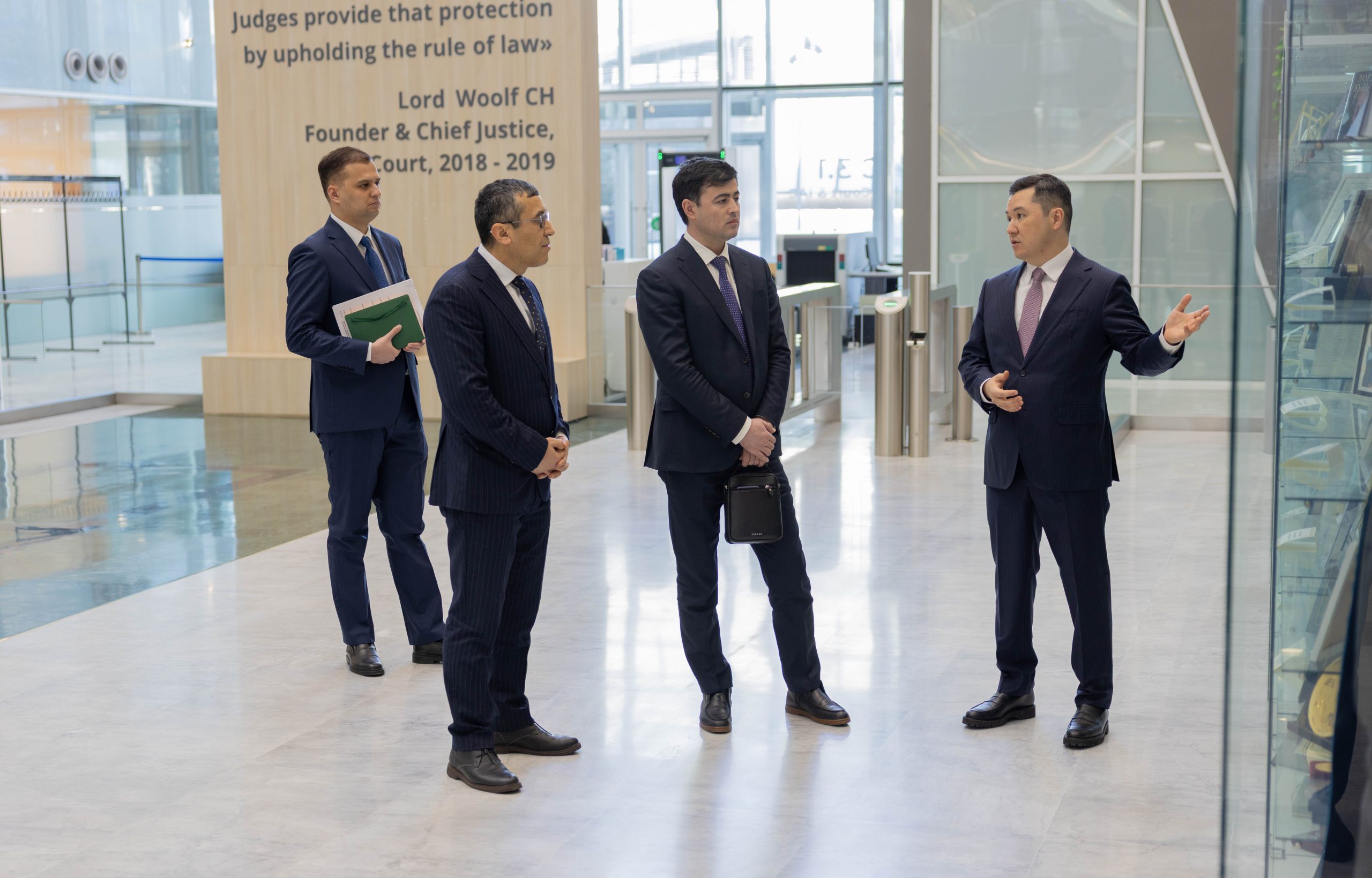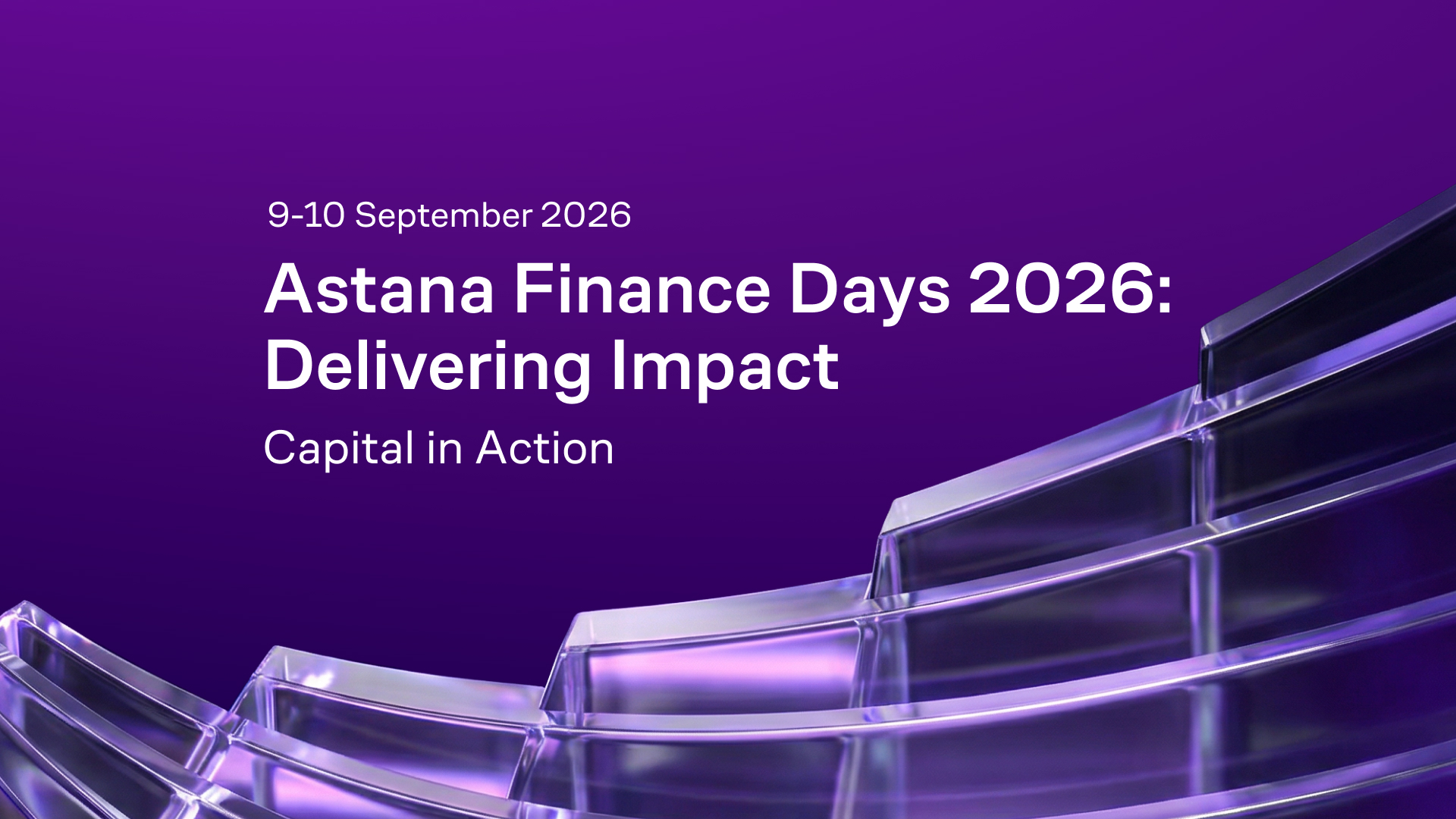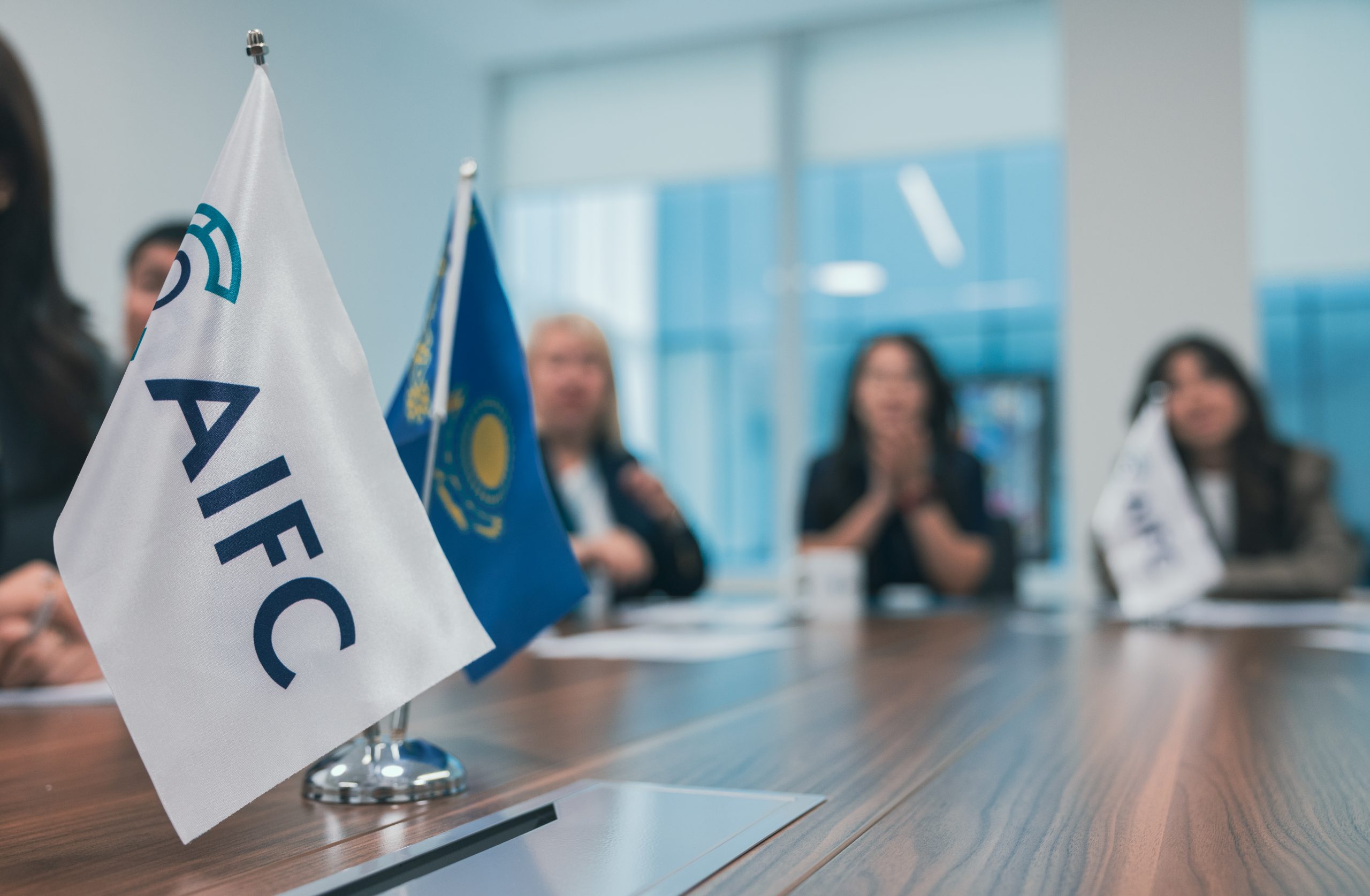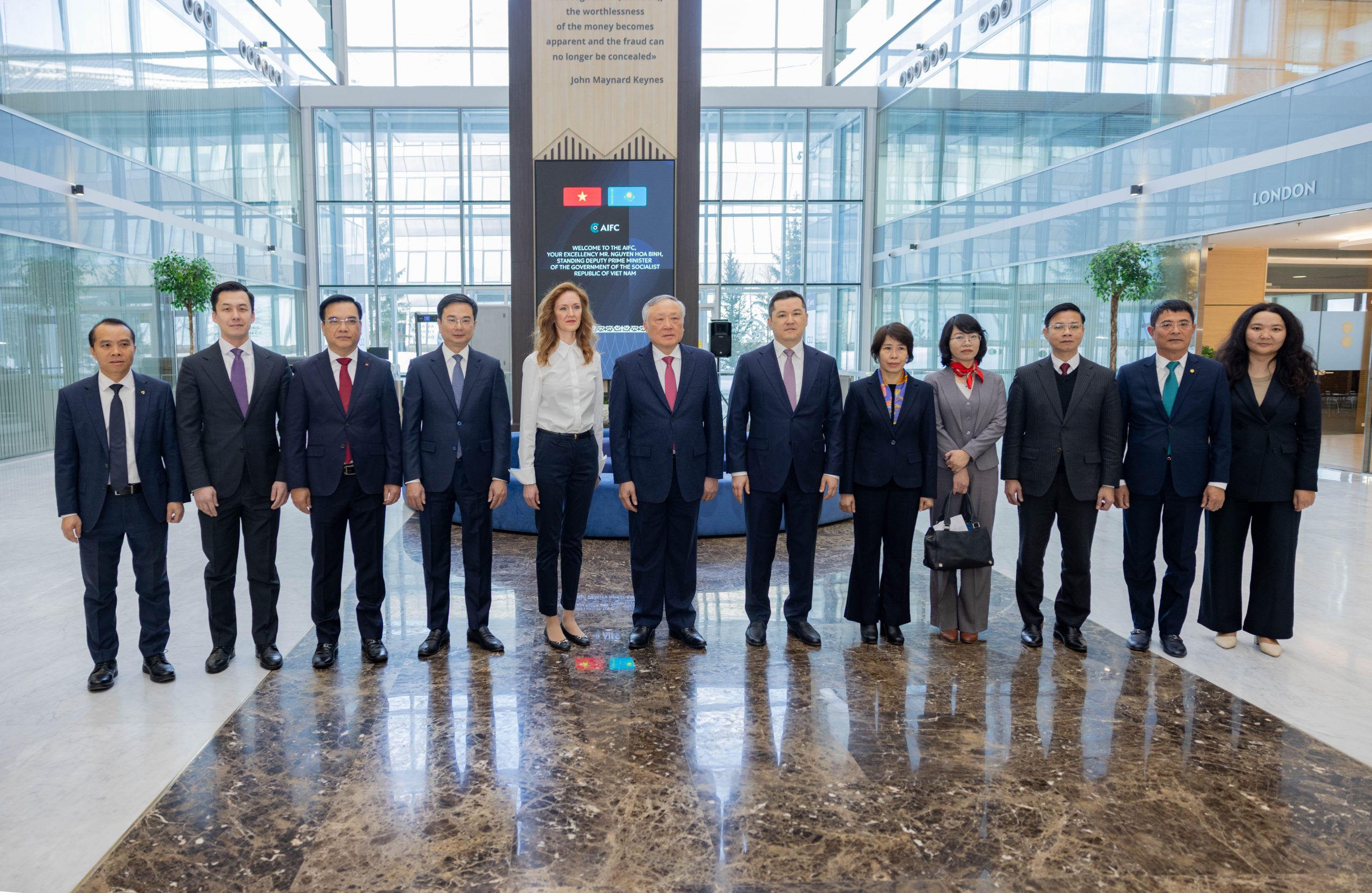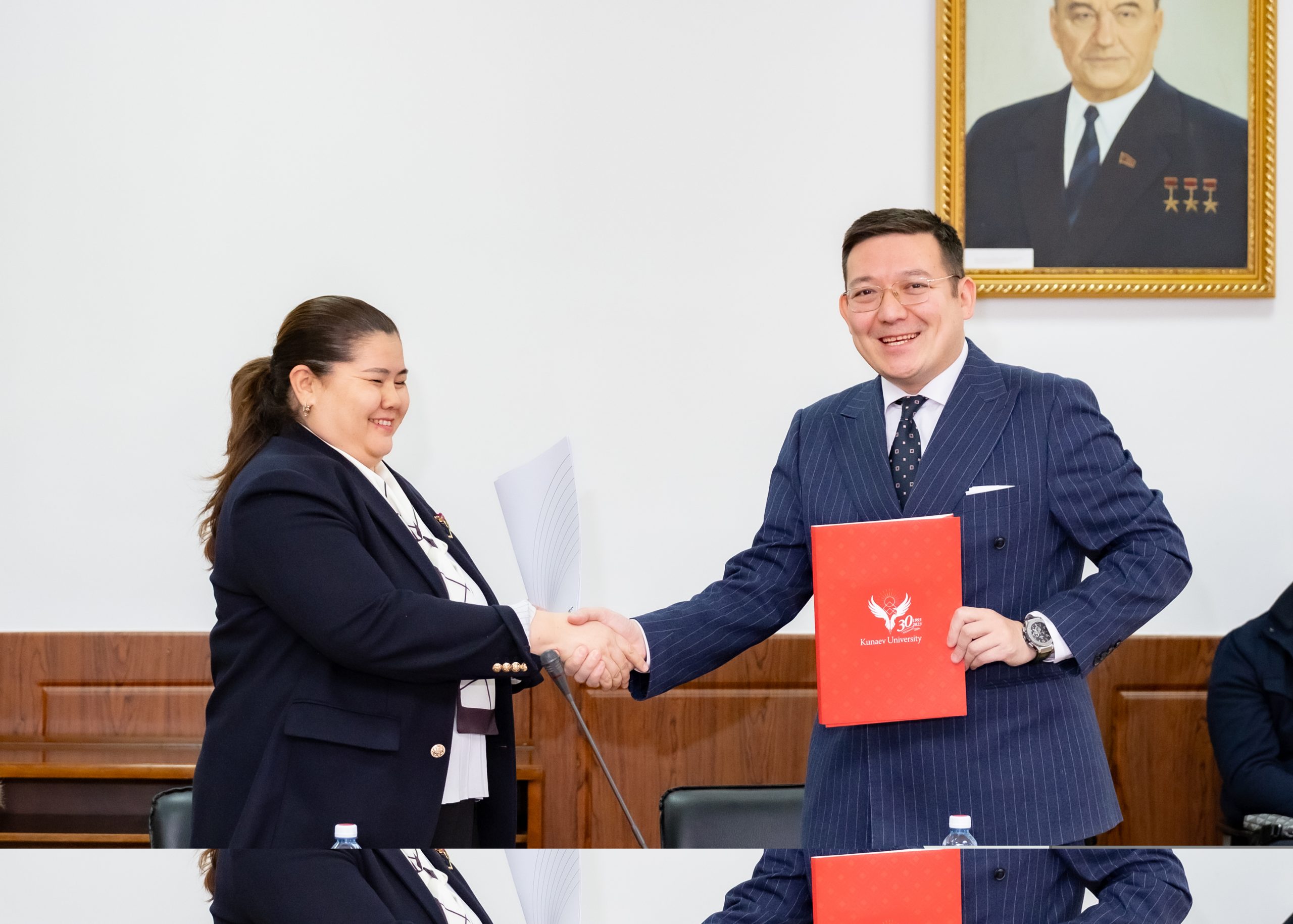Official launch of pilot project on interaction of Kazakhstan banks and crypto exchanges registered in AIFC took place within Astana Finance Days
The official launch ceremony of the pilot project has involved representatives of the National Bank of the Republic of Kazakhstan, the Financial Monitoring Agency of the Republic of Kazakhstan, the Ministry of Digital Development, Innovation and Aerospace Industry of the Republic of Kazakhstan, the Astana International Financial Center (AIFC) and the Association of Financiers of Kazakhstan. Banks involved in the project, including the Eurasian Bank, Halyk Bank, Altyn Bank, the AIFC crypto exchanges, as well as recognised world and Kazakhstan crypto stakeholders also attended the event.
Deputy Chairman of the AIFC Management Board Kairat Kaliyev moderated the panel session dedicated to the launch of the project.
The rules of interaction between the AIFC crypto exchanges and Kazakhstan’s second-tier banks (STBs) were set out by a special working group within the efforts to develop crypto-industry and blockchain technologies.The Ministry of Digital Development, Innovation and Aerospace Industry of the Republic of Kazakhstan is a government body which is actively engaged in digital technologies. According to its First Deputy Minister Zhaslan Madiyev, Kazakhstan has abundant opportunities to become a crypto-hub.
“In pursuance of the instruction of the Head of State given earlier, the Ministry is working on a draft law “On digital assets” initiated by Members of the Majilis of the Republic of Kazakhstan. This bill will take into account all the pros and cons of the pilot project and create the most favorable regulatory conditions for the development of a comprehensive digital ecosystem. In our country, there is a rapid development of human capital in this area. We are also actively starting to attract blockchain technologies and are also going to use blockchain in public services,” said Zhaslan Madiyev.
The interaction between the AIFC crypto exchanges and Kazakhstan’s STBs is a pilot project designed to provide an appropriate regulatory framework for further development of Kazakhstan’s potential as a regional crypto hub. The project will operate in pilot mode throughout 2022. It will involve crypto exchanges licensed by AFSA to operate as Digital Assets Trading Facilities, in cooperation with second-tier banks.
According to Gabit Lesbekov, Head of Liaison Office for Entities Subject to Financial Monitoring at the Financial Monitoring Agency of the Republic of Kazakhstan, digital technologies are new and decentralised technologies, and thus pose high money-laundering risks, while the banking sector is an active anti-money laundering stakeholder.
“We receive 95% of the information on all questionable transactions from second-tier banks. They are the most involved participants, and they have a built-in and high-quality anti-money laundering compliance system. The only thing they need is to understand the specifics of digital technologies. We believe that there will be no difficulties for banks to carry out operations, while observing all our standards. We hope that this pilot project will give an impetus to further development of the crypto industry and to increase the investment attractiveness of Kazakhstan,” said Gabit Lesbekov.
The positive side of the pilot project is the organisation of trading of digital assets in the Republic of Kazakhstan in a regulated field, which ensures proper protection of the rights of retail and professional investors. In case of successful implementation of the pilot project, changes will be made both to the national legislation and to the AIFC acts.
According to the CEO of AFSA Nurkhat Kushimov, when launching crypto exchanges government agencies and regulators cooperated in a highly coordinated manner, which was the key to success.
“The banking industry complements the crypto industry with good quality compliance, methods, and counteraction systems. Crypto exchanges and banks should show maximum efficiency. Digital assets are a young industry, but we are ready to constantly work with colleagues and exchange opinions. We need to ensure proper regulation, but we also must not miss out on this market. We need to work to ensure that major players are in Kazakhstan, and we should attract new world-class stakeholders. We should become a hub that attracts both Kazakhstan and overseas miners. Their involvement in our financial ecosystem will help provide additional investments, liquidity and imports for the growth of Kazakhstan’s economy,” said AFSA CEO Nurkhat Kushimov.
Reference:
The Astana Financial Services Authority (AFSA) is the independent regulator of the Astana International Financial Centre (AIFC), which is established in accordance with the Constitutional Law of the Republic of Kazakhstan “On the Astana International Financial Centre” for the purposes of regulating financial services and related activities in the AIFC. AFSA administers the AIFC Regulations and Rules and is responsible for the authorisation, registration, recognition and supervision of financial firms and market institutions in the AIFC.
Over 1,400 firms from 64 countries are registered in the AIFC. These firms provide banking, insurance, investment, professional and other services. The range of financial services offered at the AIFC is comparable to the list of services available in long-established financial centers of the world, such as London, Hong Kong, Singapore, Dubai and others. www.afsa.kz
The Astana International Financial Centre (AIFC) is an independent jurisdiction that started operations in 2018. In accordance with the Development Strategy until 2025, the key focus of the AIFC is to consolidate as a universal platform connecting the countries of the EAEU, Central Asia and the Caucasus.
